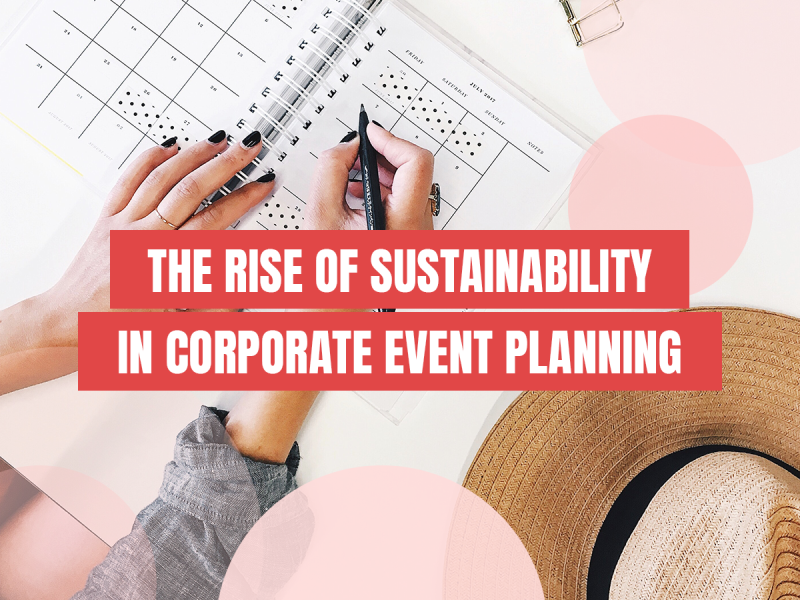In an era where environmental consciousness is at the forefront of global conversations, the business world is undergoing a paradigm shift towards sustainable practices. Corporate event planning, traditionally focused on grandeur and opulence, is now embracing a more eco-friendly approach. In this article, we’ll explore the growing trend of sustainability in corporate event planning and the positive impact it can have on both businesses and the planet.
The Need for Sustainable Corporate Events:
With climate change and environmental degradation becoming increasingly urgent concerns, companies are recognising the importance of incorporating sustainable practices into their operations. Corporate events, often extravagant and resource-intensive, have a significant environmental footprint. From excessive energy consumption to single-use plastics, these events can contribute to environmental degradation.
By adopting sustainable practices in event planning, businesses can align their values with their actions, showcasing a commitment to environmental responsibility. This not only resonates positively with stakeholders but also contributes to a positive corporate image.
Key Elements of Sustainable Event Planning:
Venue Selection:
Choosing a sustainable venue is a crucial first step in planning an eco-friendly corporate event. Look for venues that have implemented green initiatives, such as energy-efficient systems, waste reduction programs, and the use of renewable energy sources.
Waste Reduction:
Minimising waste is a cornerstone of sustainable event planning. This involves strategies like using reusable or compostable materials, avoiding single-use plastics, and implementing effective waste segregation and recycling programs during the event.
Energy Efficiency:
Opting for energy-efficient lighting, heating, and cooling systems can significantly reduce the environmental impact of corporate events. Additionally, encouraging attendees to use public transportation or carpooling can further cut down on the event’s carbon footprint.
Sustainable Catering:
Food and beverage choices play a significant role in the sustainability of an event. Opt for local, seasonal, and organic produce to support local farmers and reduce the carbon footprint associated with transportation. Minimise food waste through careful planning and consider offering vegetarian or vegan options to cater to diverse dietary preferences.
Digital Communication:
Reduce the need for paper by embracing digital communication for invitations, programs, and promotional materials. Utilise event apps and websites to provide information, updates, and interactive features, further minimising the environmental impact.
Benefits of Sustainable Corporate Events:
Positive Brand Image:
Demonstrating a commitment to sustainability enhances a company’s brand image. Consumers and stakeholders are increasingly valuing environmentally conscious businesses, and hosting sustainable events is a tangible way to showcase this commitment.
Cost Savings:
Contrary to the misconception that sustainability comes at a high cost, adopting eco-friendly practices in event planning can lead to cost savings in the long run. Reduced energy consumption, waste reduction, and efficient resource management contribute to a more cost-effective approach.
Employee Engagement:
Engaging employees in sustainable initiatives fosters a sense of corporate responsibility and can boost employee morale. Employees are more likely to feel proud of their association with a company that prioritises environmental sustainability.
As corporate event planning undergoes a green revolution, businesses have the opportunity to lead by example and make a positive impact on the environment. By incorporating sustainable practices into events, companies can not only reduce their ecological footprint but also enhance their brand image and foster a culture of environmental responsibility. The shift towards sustainability in corporate event planning is not just a trend; it’s a crucial step towards a more responsible and harmonious future.

